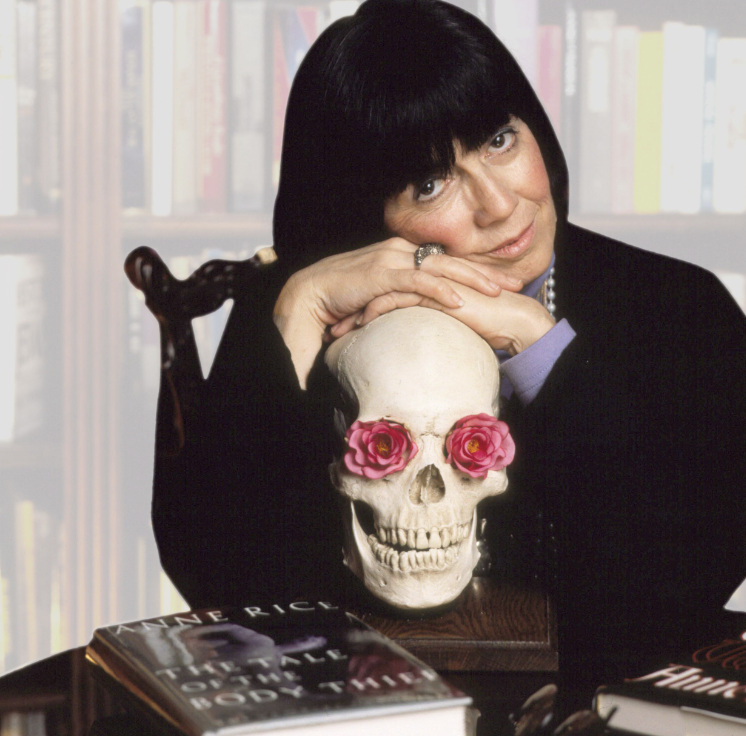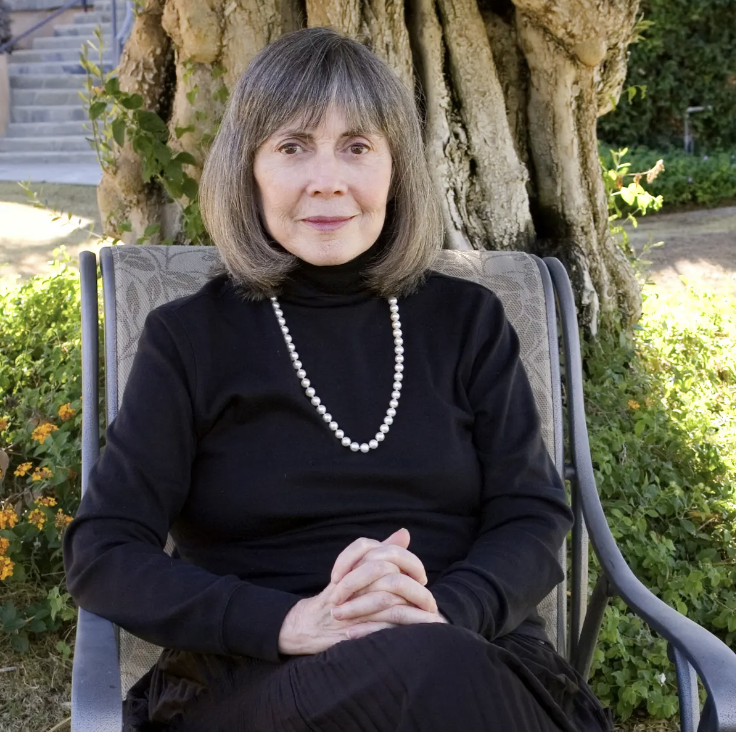Anne Rice, born Howard Allen Frances O’Brien (because her mother thought naming her “Howard” after her father would be an interesting thing to do) on October 4, 1941, was an iconic figure in the world of literature. Known primarily for her compelling (and sensual) books, Rice created a unique niche within the genres of gothic fiction and supernatural fantasy. Now that “spooky season” is truly upon us and we are desperate for thrilling reads, we honor her birthday today with a wish to explore her literary masterpieces!

*
Anne Rice was born in New Orleans, Louisiana. Her birthplace, a location steeped in history and the mysticism of the Deep South (as any who have visited the city will attest), would later serve as an influential setting for several of her novels. She became “Anne” when a nun asked her for her name at school, and being self conscious about being “Howard” (who knows why) said her name was “Anne” – a name she thought was pretty. Her early years were unfortunately marked by tragedy; she lost her mother to alcoholism in her teens and would later face her own health challenges. It was during these tumultuous years that she began to nurture her love for literature and storytelling, eventually earning herself a degree in political science from San Francisco State University.
Anne Rice’s true literary journey began in 1976 when she released her debut novel, Interview with the Vampire, to the world. Reeling from the early death of her daughter to cancer, Rice took a previously written short story and turned it into a work that captured the attention of the country. This novel, the start of her celebrated “The Vampire Chronicles” series, created a subgenre of gothic and vampire fiction that continues to captivate readers and interest writers to this day. Rice’s storytelling capabilities are evident from the first page of Interview with a Vampire – she drew her readers into a dark and seductive world where vampires exist not as monsters but as complicated and tormented “human” characters.
One thing that sets Rice apart from other writers of her time was her willingness to tackle more taboo subjects head-on. Her novels are confidently erotic (and occasionally explicit), pushing the boundaries of what is considered conventional, mainstream literature. Her fairly fearless exploration of sensuality, desire, and the general darker aspects of human nature have helped make her a household name. While Interview with a Vampire and “The Vampire Chronicles” may be her most famous works, Rice’s literary successes extend beyond her world of vampires alone. In The Witching Hour, she introduced her readers to the family of the Mayfair witches, with a saga of magic, family, and fate. She even published “The Songs of Seraphim” series – detailing layers of spirituality and focusing on angels, faith, and the battle between good and evil. The most controversial of her works must be “The Sleeping Beauty Quartet,” a series of erotic novels written under the pseudonym A.N. Roquelaure. These books focus on the world of BDSM and erotic fantasy, further pushing the envelope of what is considered “acceptable” in the world of literature. Her many different series showcase her versatility as a writer, transitioning her subject matter from vampires to witches to angels and erotica seamlessly, all while continuing to use her signature gothic style.

*
Anne Rice’s influence on literature and popular culture is undeniable. Her groundbreaking contributions to the vampire and erotic fiction genres paved the way for countless authors and even filmmakers to explore similar themes. For instance, Twilight‘s Stephanie Meyer counts Rice as a great influence! On the anniversary of her birthday, we appreciate her ability to create entire worlds far (yet close) to our own, her fearless exploration of taboo topics, and her knack for addressing pretty profound philosophical questions about life and morality all within a framework of supernatural fiction. To this day, she reminds us that literature will always have the power to both entertain and provoke.

